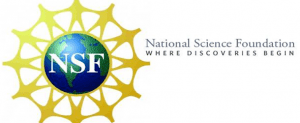Quantum News Briefs August 22: IonQ QPUs & Classiq software power winning projects at the UK’s National Quantum Computing Centre’s 2024 hackathon • NSF investing $20M to create quantum nanofabrication facility at U of Colorado • A quantum sensor on the ISS could revolutionize space exploration • Quantum computing startups will invest overseas if government shelves further tech funding, warns top UK startup

In the News:
IonQ QPUs & Classiq software power winning projects at the UK’s National Quantum Computing Centre’s 2024 hackathon

IonQ and Classiq announced in an August 21 news release that winners of this year’s annual UK Quantum Hackathon – hosted by the National Quantum Computing Centre’s (NQCC) – used IonQ quantum computers and Classiq’s software among several other quantum systems, when developing solutions for novel quantum applications.
This is the second year in a row that IonQ and Classiq have teamed up to enable hackathon teams to design, optimize and execute quantum algorithms for IonQ’s quantum computers. Classiq’s software simplifies the circuit design process by allowing users to define their quantum circuit parameters before the software converts it into an optimized quantum circuit.
The winning teams presented quantum application use cases for areas like risk aggregation, evaluation for insurance losses, network design and National Health Service (NHS) forecasting. Each teams’ approach was evaluated for scalability and how each application could address challenges in areas such as healthcare, energy and engineering.
NSF investing $20M to create quantum nanofabrication facility at U of Colorado
 The U.S. National Science Foundation (NSF) is investing $20M to create a quantum nanofabrication facility at the University of Colorado (CU) in Boulder—to accelerate co-design and development of atomic-photonic quantum devices as per the August 21 article in Laser Focus World.
The U.S. National Science Foundation (NSF) is investing $20M to create a quantum nanofabrication facility at the University of Colorado (CU) in Boulder—to accelerate co-design and development of atomic-photonic quantum devices as per the August 21 article in Laser Focus World.
The goal is to create an open-access national facility for academic, government, and industrial users to enable quantum device fabrication, characterization, and packaging essential to advancing applications ranging from quantum computers and networks to sensing to communications.
The National Quantum Nanofab (NQN), led by Scott Diddams, a professor in CU’s Department of Electrical, Computer and Energy Engineering, is intended to be a maker space where you can get access to cutting-edge instruments and collaborate on the design, fabrication, process development, and integration challenges encountered with quantum devices crafted from neutral atoms and ions.
In Other News:
Space reports: “A quantum sensor on the ISS could revolutionize space exploration”
Scientists at NASA’s Cold Atom Lab (CAL) onboard the International Space Station (ISS) have announced that, for the first time, they have successfully made high-precision measurements using a quantum sensor based on ultra-cold atoms of the element Rubidium and is described in Space magazine August 16 by author
This is a significant achievement with wide-ranging applications, as these sensors could surpass traditional ones in sensitivity and accuracy, enabling advancements in fields like technology and telecommunications.
Working versions of these sensors would offer new opportunities for scientific discoveries through the study of quantum phenomena, testing the limits of fundamental physics — and maybe even pushing beyond theories such general relativity. If so, that would undoubtedly lead to a revolution in space exploration as well.
The team hopes that, as the instrument further develops, it will become possible to make even more precise measurements of that would allow us to investigate and understand our cosmos in greater detail than ever. This enhanced sensitivity could also enable scientists to finally detect dark matter, an elusive substance that has remained a cosmic mystery.
Quantum computing startups will invest overseas if government shelves further tech funding, warns top UK startup
 UK quantum computing startup Phasecraft has warned the government not to shelve further technology funding, saying it will lead to startups shifting investment overseas as per August 22 article by John Reynolds in TechEU.
UK quantum computing startup Phasecraft has warned the government not to shelve further technology funding, saying it will lead to startups shifting investment overseas as per August 22 article by John Reynolds in TechEU.
This was in response to an announcement earlier this month that revealed the new Labour government was shelving £1.3bn of funding pledged by the previous Conservative government for tech and AI projects.
Some in the industry criticized the government’s decision, with techUK, the trade body, saying the UK risked “losing out” to other countries.
Ashley Montanaro, the co-founder of quantum computing startup Phasecraft, which has raised £17.5m inf funding, said: “I would say that for businesses like ours that stability of funding and confidence of it being available once it is being announced is pretty important.”



















